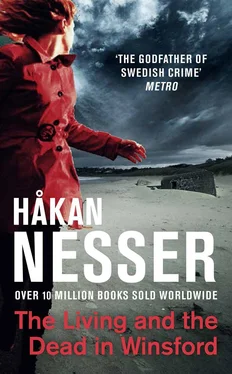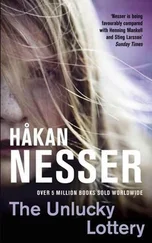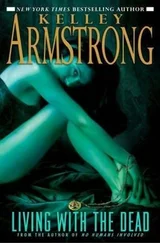Håkan Nesser - The Living and the Dead in Winsford
Здесь есть возможность читать онлайн «Håkan Nesser - The Living and the Dead in Winsford» весь текст электронной книги совершенно бесплатно (целиком полную версию без сокращений). В некоторых случаях можно слушать аудио, скачать через торрент в формате fb2 и присутствует краткое содержание. Год выпуска: 2013, Издательство: Mantle, Жанр: Криминальный детектив, на английском языке. Описание произведения, (предисловие) а так же отзывы посетителей доступны на портале библиотеки ЛибКат.
- Название:The Living and the Dead in Winsford
- Автор:
- Издательство:Mantle
- Жанр:
- Год:2013
- ISBN:нет данных
- Рейтинг книги:4 / 5. Голосов: 1
-
Избранное:Добавить в избранное
- Отзывы:
-
Ваша оценка:
- 80
- 1
- 2
- 3
- 4
- 5
The Living and the Dead in Winsford: краткое содержание, описание и аннотация
Предлагаем к чтению аннотацию, описание, краткое содержание или предисловие (зависит от того, что написал сам автор книги «The Living and the Dead in Winsford»). Если вы не нашли необходимую информацию о книге — напишите в комментариях, мы постараемся отыскать её.
The Living and the Dead in Winsford — читать онлайн бесплатно полную книгу (весь текст) целиком
Ниже представлен текст книги, разбитый по страницам. Система сохранения места последней прочитанной страницы, позволяет с удобством читать онлайн бесплатно книгу «The Living and the Dead in Winsford», без необходимости каждый раз заново искать на чём Вы остановились. Поставьте закладку, и сможете в любой момент перейти на страницу, на которой закончили чтение.
Интервал:
Закладка:
When we had hung up I passed by the hall mirror and saw my face in it. I smiled.
I shall drive Mark back to Arlanda. Of course I shall. I have to be out of the house tomorrow afternoon anyway, as there will be people coming to look it over then. The official viewing time isn’t until next weekend, but the estate agent said he had a few very promising prospective buyers, and so it would be silly not to give them an advance viewing.
Everybody says I’m being too precipitate, but I let them think so. They reckon I should continue living here for at least six months, and see how it feels. But you don’t know the whole story, I think to myself as I listen to their arguments. You don’t understand. You shouldn’t make important decisions when you’re in a state of crisis, they say: you should at least finish mourning first.
I’m not in a state of crisis, I think. I’m not mourning.
Christa is the only one I’ve told that I can’t bear the thought of carrying on living in this house. Not another week, barely another day. I think she understands me. Or at least, understands the fiction I present her with.
Gunvald and Synn have been here, then left again. We were together all last weekend, and as far as I was concerned it was a flawed and stiff theatrical performance. I know that they are both deeply affected by Martin’s death, but we’re simply not on the same wavelength. We are three individual instruments, all out of tune, trying to pretend that we are a trio — despite the fact that we have never been one, and have little prospect of ever becoming one. But it seemed to me that despite everything, I might — eventually — be able to establish a better relationship with Synn. I had that feeling, in brief moments when our eyes met; but the presence of Gunvald and the situation we found ourselves in closed all doors for the time being.
Gunvald returned to Copenhagen last Monday. Synn flew back to New York the following day. We are not yet thinking in terms of a funeral, but we agreed to have a sort of memorial service at Easter. I’ve spoken to a clergyman, and he said it was usual to make such arrangements, given the circumstances.
Unless something new happens before then, that is. Assuming they don’t fish up a dead body down at Fehmarn. A police officer I spoke to explained that the sea currents in that area are completely unpredictable. Some flow up towards Denmark, others flow out into the Baltic — it’s more or less impossible to predict where things that have fallen overboard will end up.
The day after I got home I composed a short e-mail that I sent to everybody involved: Bergman, Soblewski, Christa, Martin’s closest colleagues in his university department, my closest colleagues at the Monkeyhouse, and a few others. My brother, of course. People got in touch the first couple of days, but then everything was remarkably silent. I think most of them linked Martin’s suicide with what happened in that hotel in Gothenburg almost a year ago. It would be rather odd if they didn’t.
Bergman has been in touch several times, in fact. He rang yesterday and said he had read Martin’s play. Strong stuff, he said. It has every prospect of becoming a classic. I hope that can be of some consolation to you, if. . well, if that was the last thing he ever wrote.
I replied and said I would try to see it in that light.
Did I have anything against his contacting a few theatre people already?
I said he was free to do whatever he found appropriate.
I start cutting up the shallots, and think it will be good to leave Sweden. I really didn’t think I would ever make that decision, but after spending just one day in the house I was quite sure. I’m also clear about the fact that it’s not only due to Mark: it’s all the other things as well. Opening the door to a village pub you’ve never been to before, after a long walk. The gorse that is constantly in flower and permits you to make love all the year round. Dunster Beach. Simonsbath. The Barrett witches?
When I weighed all this up against ten years in the Monkey-house, I had no doubts whatsoever, and contacted the estate agent a mere three days after my return.
I long to be back on the moor, it’s as simple as that. It’s an almost physical perception, and I dream about it at night: the wind, the rain and the mists. I don’t understand how this has come about — but then, it’s not something you need to understand.
I look at the clock. Mark should be ringing from Arlanda at any moment now, to say that he’s landed. I switch on the oven, and think it will be time to put the meat in as soon as I hear from him. I check that the bottle of white wine is in the fridge, and open the bottle of red.
There is a ring at the door.
What’s all this? I wonder.
But then the penny drops. He has fooled me. He’s taken an earlier flight and wants to surprise me. I can feel a hot flush like a teenager, and as I pass the hall mirror I see that I’m smiling again.
I look good and I smile. Perhaps you can only look like that when you’re in love. The thought embarrasses me — it’s not a thought that should occur to a woman of my age. I hurry to open the door.
Who’s ringing the doorbell?
I’m writing this postscript a bit later — not all that much later, but not immediately afterwards. Time is something I have plenty of. Strictly speaking, that’s all I have. My room is fifteen square metres, and from my window I have a view of the edge of a forest and the sky. I can see quite a lot of stars at night, and I often lie awake doing just that: looking at the stars. They say that the light we can see from them down here on earth is light they transmitted thousands of years ago, and it could well be that they have gone out now. That they are dead. I think that is interesting — it’s reminiscent of life. It has already taken place, everything important has already happened ages ago. Always assuming it really was all that important, but we have now acquired an awareness that enables us to imagine all kinds of things. I agree with that professor of literature who said the brain needs all its many convolutions in order to make us feel unhappy. That seems absolutely right — but the very fact that we can imagine things at all is significant. Things that have never existed, or that did exist but have now disappeared. It was. It will never be again. Remember — how about that for an evocative summary of life in just eight words?
Moreover I am sure that we have been given our brains so that we can handle the passage of time. An awful lot of profound things have been written about the nature of time: most often the men who devoted themselves to studying the nature of time are desperate characters who are trying hard to somehow avoid being subjected to it. It can come and go as it likes. Seconds can expand and years can shrink, that’s the way they are, after all. I think that is how our minds ought to deal with the matter. There are brief, beautiful seconds and minutes that really are so much more significant than masses of wasted rubbish years, and then — perhaps this is what I am aiming for, this conclusion I want to reach as I sit here looking at the extinguished or possibly not extinguished stars — then there are those pregnant moments that are so incredibly significant that they can barely contain the burden they are carrying. For my own part, since I landed up here, I think first and foremost about those seconds — there can’t have been very many of them — when I go to open the door that evening in February. The brief moments in between my seeing my image in the mirror and discovering that I’m smiling and look rather beautiful, until the moment when I take hold of the handle and open the door. It can’t have been more than three seconds. Four at most — it’s not far from the mirror to the front door. But time has set itself free, it does whatever it likes, it creates its own freedom, or perhaps reclaims it: it has nothing to do with any intention or effort on my part, nor with what is happening inside my head: the thoughts that normally harass me — I can’t think of a better word than ‘normally’, but no doubt I shall do so if I revise these notes tomorrow — the thoughts that normally harass me wouldn’t fit into those brief moments.
Читать дальшеИнтервал:
Закладка:
Похожие книги на «The Living and the Dead in Winsford»
Представляем Вашему вниманию похожие книги на «The Living and the Dead in Winsford» списком для выбора. Мы отобрали схожую по названию и смыслу литературу в надежде предоставить читателям больше вариантов отыскать новые, интересные, ещё непрочитанные произведения.
Обсуждение, отзывы о книге «The Living and the Dead in Winsford» и просто собственные мнения читателей. Оставьте ваши комментарии, напишите, что Вы думаете о произведении, его смысле или главных героях. Укажите что конкретно понравилось, а что нет, и почему Вы так считаете.












